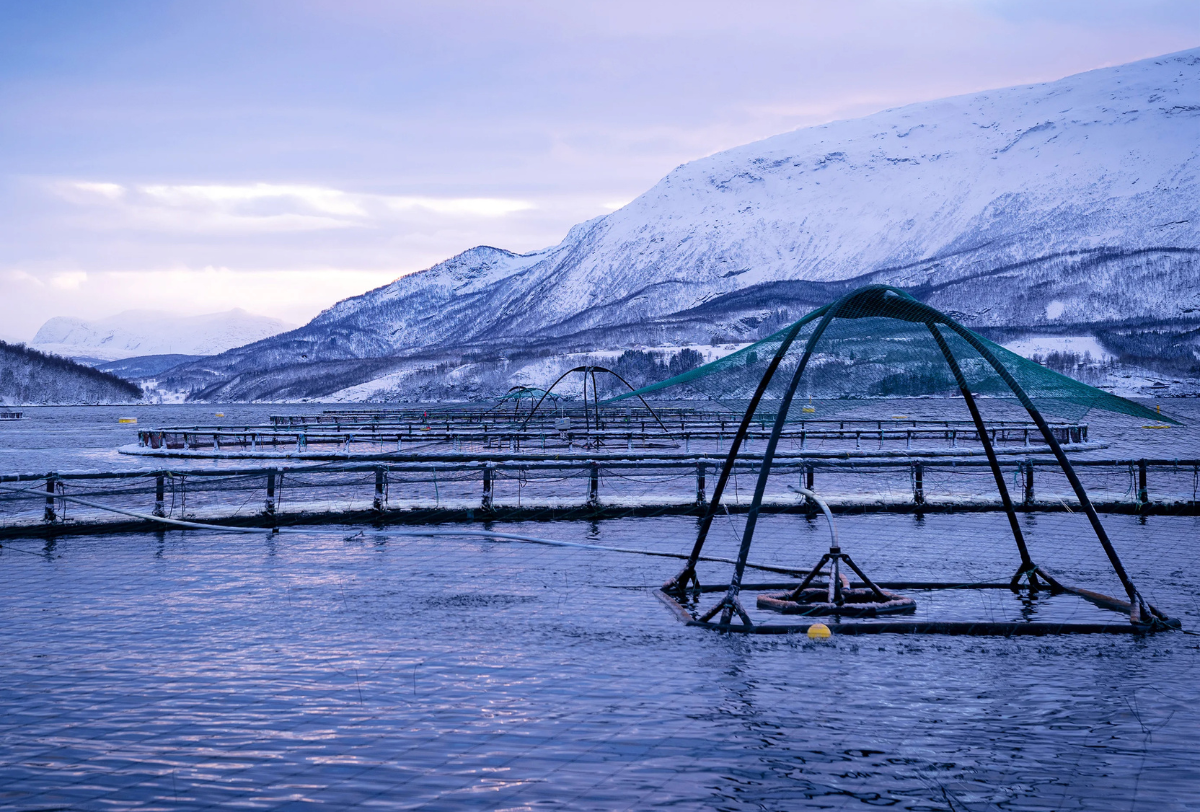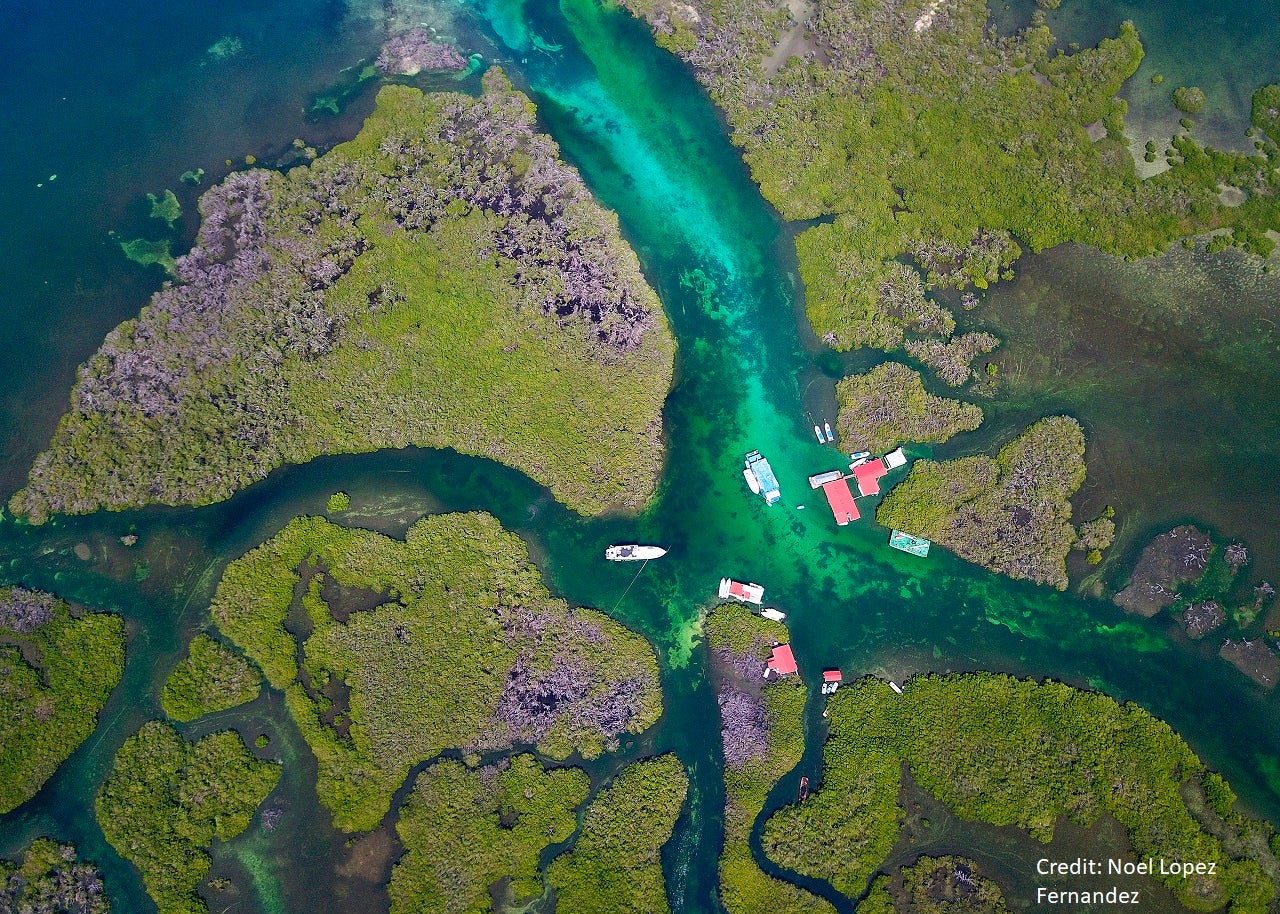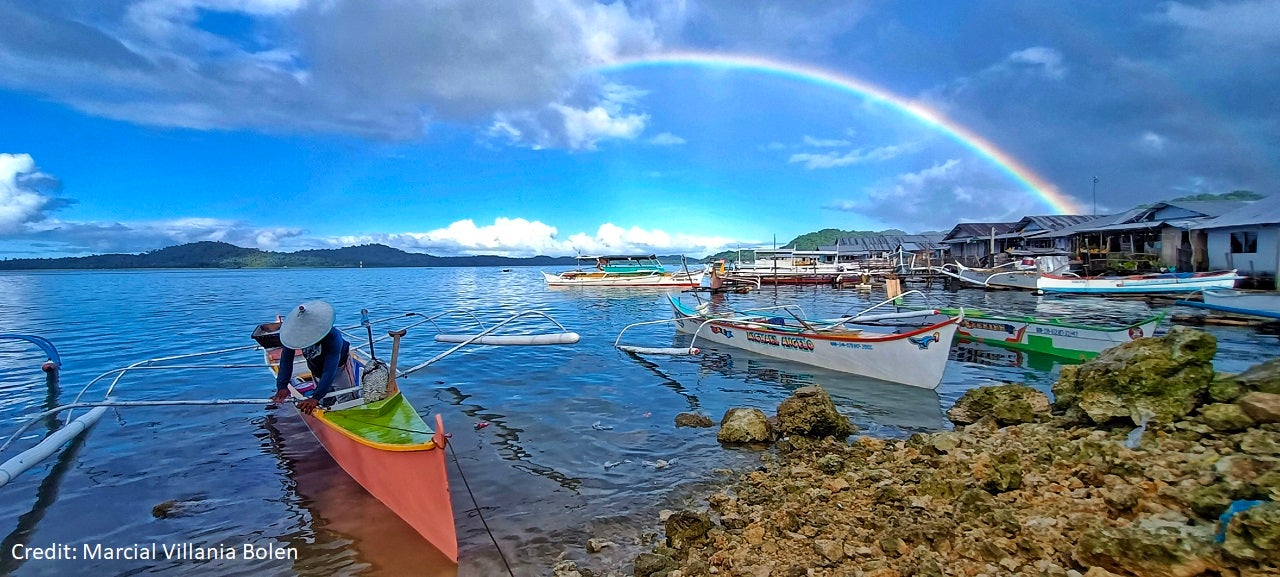 Effective fisheries management is critical to food security, livelihoods for millions of people and vibrant marine life and biodiversity. By empowering communities to sustainably manage marine resources, we can build resilience to climate change, secure healthy oceans and better protect communities that are vulnerable to extreme weather events. This is especially true in the Philippines, where science-based and participatory fisheries management is still in its infancy. Read More
Effective fisheries management is critical to food security, livelihoods for millions of people and vibrant marine life and biodiversity. By empowering communities to sustainably manage marine resources, we can build resilience to climate change, secure healthy oceans and better protect communities that are vulnerable to extreme weather events. This is especially true in the Philippines, where science-based and participatory fisheries management is still in its infancy. Read More
EDFish
Indonesia-Philippines learning exchange: International collaboration for fisheries management
Building a model for collaboration and exchange in the Asia-Pacific region
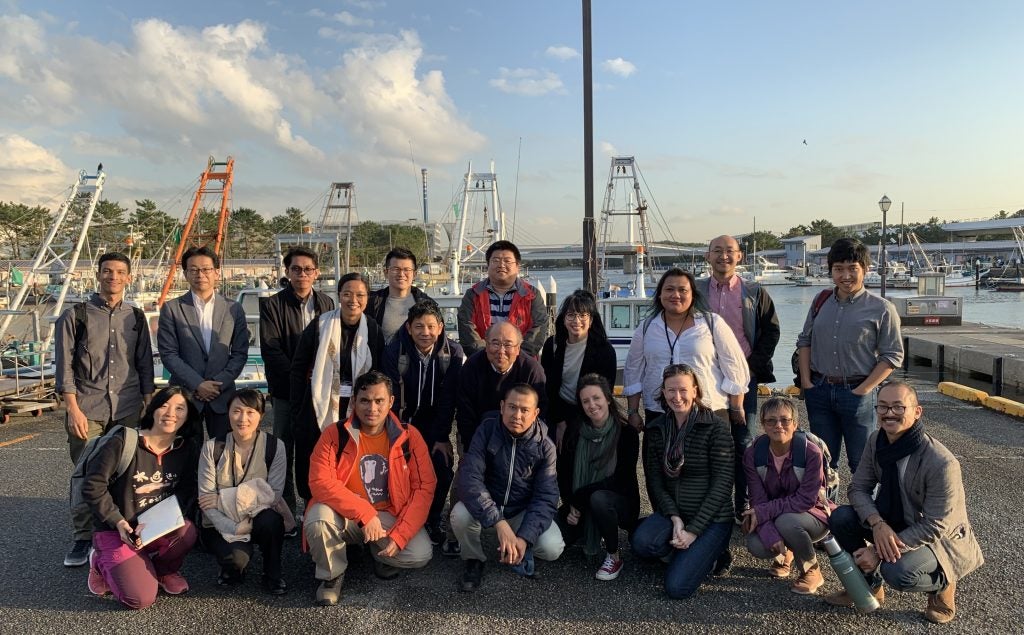
Much of EDF’s work in the Asia-Pacific region has focused on the small-scale fisheries, or SSF, sector — home to some of the most marginalized fishers in the world. These are people who are highly dependent on marine resources for their livelihood, often living in remote, coastal areas with few alternatives for employment. Small-scale fishers are also facing extremely dire threats — in their ability to sustain themselves and continue their way of life — from challenges like species depletion, coastal development, pollution and the growing impacts of climate change. Read More
Japan-Philippines fishery exchange highlights the benefits of collaboration
Bringing fishers and fishery managers from different places together through fishery exchanges is a powerful way to learn and build trust as you explore new approaches to manage fishing. After attending and leading dozens of fishery exchanges over the years, I have been amazed by the peer-to-peer discussions that take place, regardless of language barriers or cultural differences, and the candor of government officials and fishers describing the challenges they have faced or successes they have worked to achieve. It is incredible to see participants hear about something new or innovative that they could bring back to their communities. The excitement is contagious.
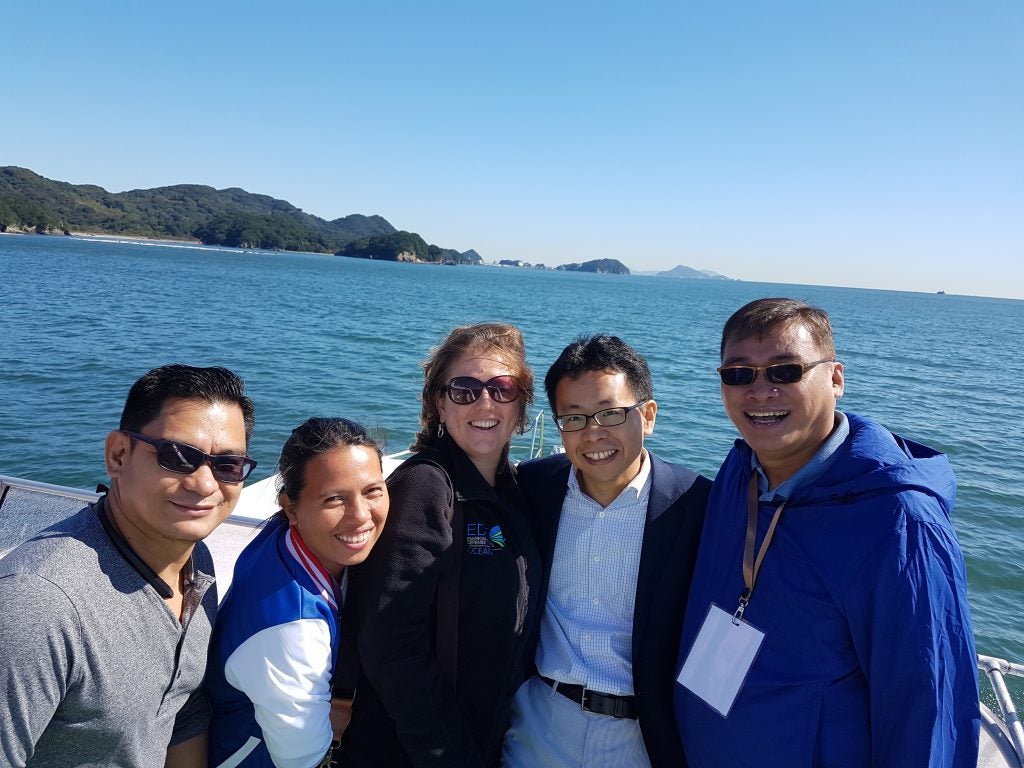 While there are always major differences between fisheries that make some aspects of learning challenging or even inapplicable, we want people to recognize and appreciate the uniqueness of ones fishery. There is not a “one size fits all” approach to managing fisheries because each fishery has its own set of characteristics based on the history of the fishery, culture of the area, species composition, governance structure, resources, and most importantly fishers and their accustomed fishing practices. These exchanges are an opportunity to share experiences with others and to learn from each other about new and different approaches that can be adopted to improve fisheries management.
While there are always major differences between fisheries that make some aspects of learning challenging or even inapplicable, we want people to recognize and appreciate the uniqueness of ones fishery. There is not a “one size fits all” approach to managing fisheries because each fishery has its own set of characteristics based on the history of the fishery, culture of the area, species composition, governance structure, resources, and most importantly fishers and their accustomed fishing practices. These exchanges are an opportunity to share experiences with others and to learn from each other about new and different approaches that can be adopted to improve fisheries management.
Recently, EDF and our partner Rare-Philippines organized a Japan-Philippines exchange for a delegation from the Philippines to visit several fisheries in Mie Prefecture, Japan. We were particularly inspired to see firsthand what happens when fishers are empowered by the local government to make day to day management decisions: they pursue solutions that improve their livelihoods, and the long term sustainability of the fish they depend on. Those attending included champion mayors and their local government staff from eight municipalities that all have legally approved TURF+Reserves and are in the process of implementing these new systems on the water. Read More
Empowering Women in Blue Swimming Crab Fisheries Management in Lampung
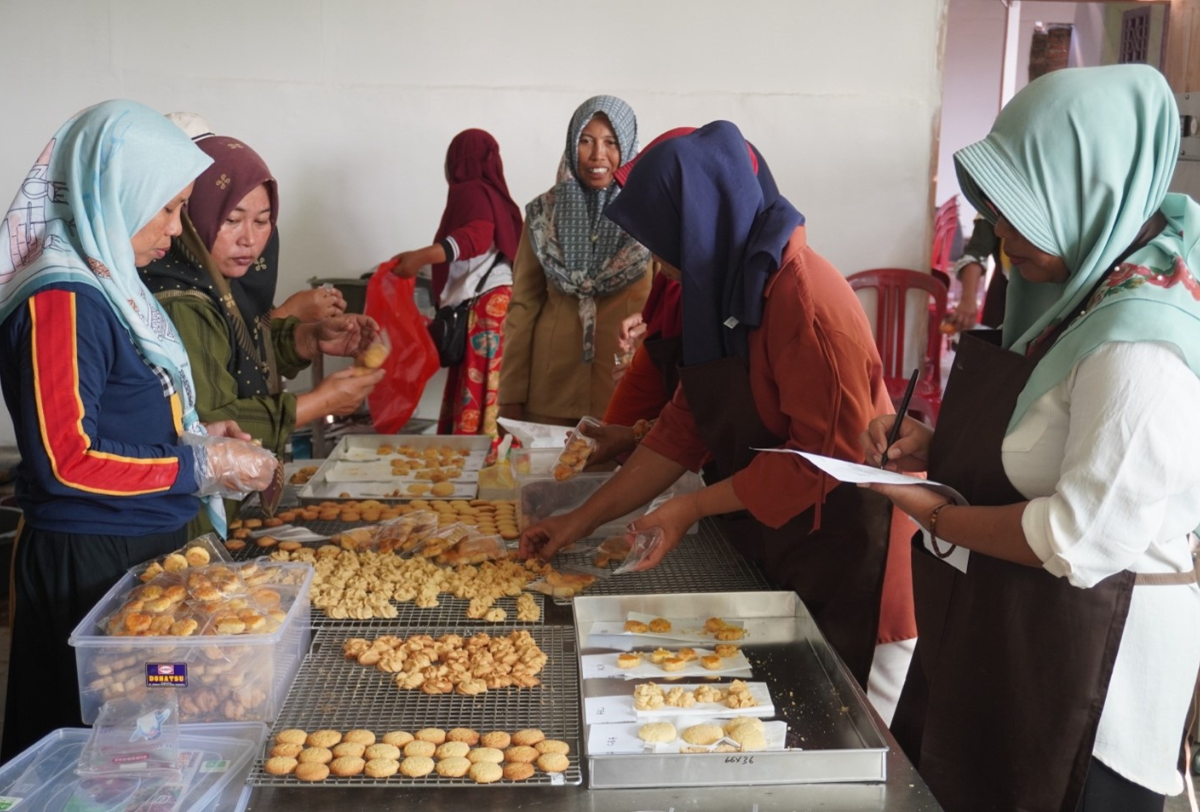
Women group in Muara Gading Mas making cookies from powder made from blue swimming crab shells. (Photo Credit: Meutia Isty/EDF)
By: Onesya Damayanti, M. Khazali, and Meutia Isty
“Fishing with trawl must be stopped because it has increasingly reduced my husbands’ blue swimming crab catches,” Sunamah stated confidently during the Lampung Blue Swimming Crab Co-Management meeting on March 5, 2024, representing women groups. Speaking in an official forum of about 50 participants, predominantly male government officials, was something she had never imagined possible before. Read More
A Look at Science, Technology, and Artificial Intelligence for Sustainable Aquaculture
We’ve come to our final blog in our series on sustainable aquaculture for EDFish. Now that we’ve covered aquaculture feed, escapes, and diseases, we’ll wrap up the discussion with a look at technology’s role in sustainable aquaculture. With appropriate investment and incentives, ocean farming technologies and innovations could address sustainability risks for farming seafood in U.S. federal waters, also known as “open ocean aquaculture.” Read More
For fisheries in the Caribbean, life revolves around the climate… and our climate resilience
By:
- Eduardo “Lalo” Boné Morón, Senior Manager, EDF Cuba Oceans Program
- Juan Carlos Duque, Project Manager of the Biological Corridor in the Caribbean of UNEP
- José “Pepe” Gerhartz, Conservation Specialist of the CBC Secretariat
“Life revolves around the climate,” says José Luis “Pepe” Gerhartz, a senior conservation specialist from the Caribbean Biological Corridor Initiative, or CBC, a joint initiative between Cuba, the Dominican Republic, Haiti and Puerto Rico. The scientific knowledge generated by Pepe, among many other experts dedicated to studying climate, indicates that climate change is causing drastic alterations to our oceans. These alterations are inevitably affecting marine ecosystems and the millions of people who depend on them. Fisheries are already suffering as changes in sea temperature, sea currents and many other processes in the oceans affect the abundance and distribution of marine species. Certain organisms will be able to adapt, moving in search of better conditions. However, many others will not, potentially reducing the oceans’ ability to thrive and nourish the world. Read More










